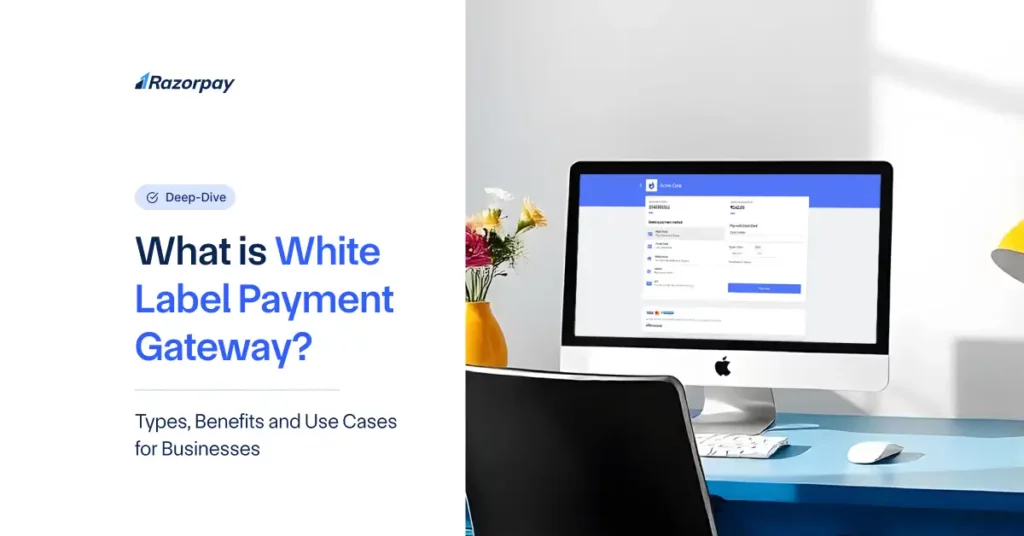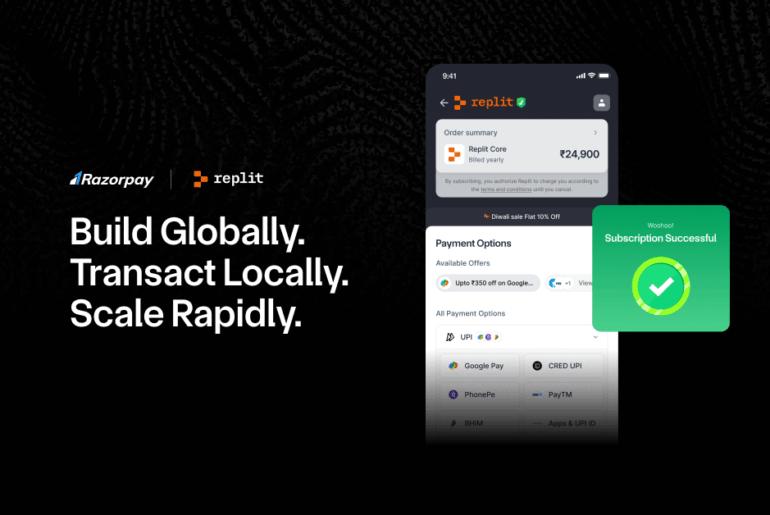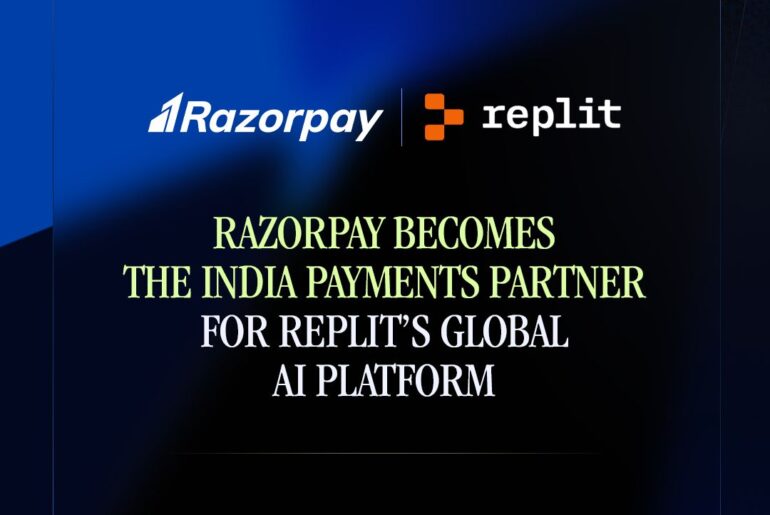Table of Contents
What is White Label Payment Gateway?
A white-label payment gateway is a payment solution that allows businesses to process online payments under their own brand name by using the infrastructure of a third-party provider, customized with their logo, colors, and branding elements.
White Label Payment Gateway Examples
Some popular white label payment gateway providers in India include:
1. Razorpay White Label Wallet
Razorpay offers a customizable payment gateway that supports various payment methods, including credit/debit cards, net banking, UPI, and wallets.
2. Paytm
Paytm provides a white label solution that enables businesses to accept payments through their own branded payment pages.
3. Instamojo
Instamojo’s white label offering allows businesses to create custom payment links and integrate them into their websites or apps.
4. CCAvenue
CCAvenue offers a white label payment gateway that supports multiple currencies and payment options, making it suitable for businesses with a global customer base.
Types of Businesses that Use White Label Payment Gateways
White label payment gateways are versatile and can be used by a wide range of businesses, including:
1. E-commerce stores
Online retailers can integrate a white label payment gateway to provide a smooth and secure checkout experience for their customers.
2. Subscription services
Businesses that offer subscription-based products or services can use a white label solution to manage recurring payments and subscriptions.
3. SaaS platforms
Software-as-a-Service companies can leverage white label payment processing to handle customer payments for their online tools and services.
4. Online marketplaces
Platforms that connect buyers and sellers can use a white label payment gateway to facilitate transactions and ensure secure payments.
5. Mobile apps
App developers can integrate a white label payment solution to enable in-app purchases and subscriptions.
Real-world examples of successful white label payment gateway implementations include:
- Bookmyshow, an online ticketing platform, uses a white label solution to process payments for movie tickets, events, and shows.
- Zomato, a food delivery and restaurant discovery app, integrates a white label payment gateway to handle customer payments for food orders.
- Unacademy, an online learning platform, uses a white label payment solution to manage course fees and subscriptions.
How White-Label Payment Gateways Work
White-label payment gateways process transactions seamlessly while maintaining a business’s branding. Here’s how the process typically works:
1. Customer Payment Entry
The customer enters payment details on the business’s branded checkout page.
2. Data Capture
The payment gateway securely captures the payment information and forwards it to the payment processor.
3. Transaction Routing
The payment processor sends the transaction data to the appropriate card network or payment system.
4. Approval or Decline
The card issuer reviews the transaction, checking the customer’s account status and available funds, then approves or declines the payment.
5. Response Display
The gateway receives the issuer’s response and shows the appropriate message to the customer.
6. Fund Transfer
If approved, the funds move from the customer’s account to the business’s merchant account.
7. Transaction Confirmation
The payment gateway notifies the business of the successful transaction and provides a unique transaction ID.
Benefits of Using a White-Label Payment Gateway
Integrating a white-label payment gateway offers several key advantages for businesses:
1. Enhance Brand Identity with Custom Branding
Maintain a consistent brand experience throughout the checkout process to build customer trust and loyalty.
2. Save Costs Compared to In-House Solutions
Avoid the high expenses of developing and maintaining a payment solution by opting for a cost-effective white-label gateway.
3. Quick and Easy Integration
APIs and SDKs allow seamless integration into your website or app, minimizing setup time.
4. Grow with Scalability and Flexibility
Handle increasing transaction volumes and support new payment methods as your business expands.
5. Ensure Safety with Advanced Security Features
Benefit from industry-standard security measures like PCI-DSS compliance, encryption, tokenization, and fraud detection.
6. Improve Conversions with a Streamlined User Experience
Offer a seamless and user-friendly checkout process to reduce cart abandonment and boost sales.
Key Factors to Consider When Choosing a White-Label Payment Gateway
1. Custom Branding Options for a Seamless Customer Experience
Ensure the gateway supports full branding, including your logo, colors, and fonts, to reflect your identity.
2. Transparent and Competitive Transaction Fees
Look for clear pricing models without hidden costs to maximize profitability.
3. Quick and Simple Integration with Existing Systems
Choose a gateway with modern APIs, SDKs, and third-party integration capabilities for easy implementation.
4. Compatibility with Your Target Business Types
Confirm the provider supports the industries you serve, including high-risk sectors if applicable.
5. Support for Global Transactions and Multiple Payment Methods
Ensure compatibility with multiple currencies, regions, and payment options like cards, wallets, and QR codes.
6. Reliable Partnerships with Acquiring Banks
Work with a provider that has strong relationships with banks to ensure smooth and successful transactions.
7. Robust Security and Compliance with Industry Standards
Verify PCI-DSS compliance and advanced features like tokenization, fraud detection, and adherence to regional regulations.
8. 24/7 Customer Support for Real-Time Issue Resolution
Opt for providers offering round-the-clock assistance via live agents.
9. Scalable Solutions for Business Growth
Ensure the gateway can handle increasing transaction volumes, new payment methods, and evolving needs.
10. Advanced Tools for Reporting and Operational Efficiency
Look for features like detailed reporting, customizable merchant onboarding, and actionable insights to enhance performance.
How is a White Label Payment Gateway different from a standard Payment Gateway?
To better understand the distinction between a white label payment gateway and a standard payment gateway, let’s compare them across various aspects:
Aspect |
Payment Gateway |
White Label Payment Gateway |
|
Definition |
A service that facilitates online payments by securely processing transactions between merchants and customers |
A customizable payment gateway solution that allows businesses to accept payments under their own brand |
|
Branding |
Displays the payment gateway provider’s branding during checkout |
Displays the business’s branding throughout the checkout process |
|
Customisation |
Limited customisation options |
Highly customizable to match the business’s website or app design |
|
Ownership Perception |
Customers may perceive the payment process as being handled by a third-party |
Customers perceive the payment process as being handled directly by the business |
|
Use Case |
Suitable for businesses that don’t require extensive branding or customisation |
Ideal for businesses that want to maintain a consistent brand experience and have specific customisation needs |
|
Control Over Features |
Features are determined by the payment gateway provider |
Businesses have more control over the features and functionalities of the payment gateway |
|
Cost |
Generally less expensive than white label solutions |
May involve higher setup and maintenance costs compared to standard payment gateways |
|
Integration |
Requires integration with the payment gateway provider’s API |
Requires integration with the white label payment gateway provider’s API |
|
Target Users |
Small to medium-sized businesses with simpler payment needs |
Enterprises and businesses with more complex payment requirements and branding preferences |
|
Revenue Model |
The payment gateway provider earns revenue through transaction fees |
The white label payment gateway provider earns revenue through setup fees, maintenance costs, and transaction fees |
Related Read: What are the 4 Different Types of Payment Gateway?
Conclusion
A white label payment gateway is a powerful payment solution that enables businesses to accept online payments while maintaining a consistent brand experience. When choosing the best payment gateway in India for your business, consider factors such as transaction fees, integration ease, and customer support to ensure a seamless and reliable payment experience for your customers.
Frequently Asked Questions
1. Is it secure to use a White Label Payment Gateway?
Yes, reputable white label payment gateway providers employ robust security measures, such as encryption, tokenisation, and PCI-DSS compliance, to protect sensitive payment data and prevent fraud.
2. How much does it cost to implement a White Label Payment Gateway?
The cost of implementing a white label payment gateway varies depending on the provider and your business’s specific requirements.
3. Can I customize the features and interface of a White Label Payment Gateway?
Yes, one of the key benefits of using a white label payment gateway is the ability to customize the features and interface to match your business’s branding and specific needs.
4. How long does it take to set up a White Label Payment Gateway?
The setup time for a white label payment gateway depends on the complexity of your integration and the level of customisation required. However, most providers offer APIs and SDKs that allow for relatively quick and straightforward integration.
5. Does a White Label Payment Gateway support multiple payment methods?
Yes, most white label payment gateways support a wide range of payment methods, including credit/debit cards, net banking, UPI, wallets etc.
6. Can a White Label Payment Gateway handle international transactions?
Many white label payment gateways support multiple currencies and can process international transactions. However, it’s essential to verify this with the provider and ensure they support the specific countries and currencies relevant to your business.
7. Are there any compliance requirements for using a White Label Payment Gateway?
Yes, businesses using a white label payment gateway must comply with various regulations and industry standards, such as PCI-DSS, to ensure the security of customer data. Your white label payment gateway provider should be able to guide you through the necessary compliance requirements.
8. How can a White Label Payment Gateway improve customer experience?
A white label payment gateway can improve customer experience by providing a seamless and branded checkout process, supporting multiple payment options, and ensuring fast and secure transactions. This can lead to increased customer trust, loyalty, and conversions.
9. Can I generate revenue by reselling a White Label Payment Gateway?
Yes, some white label payment gateway providers offer reseller programs that allow businesses to generate revenue by providing payment processing services to their clients.


